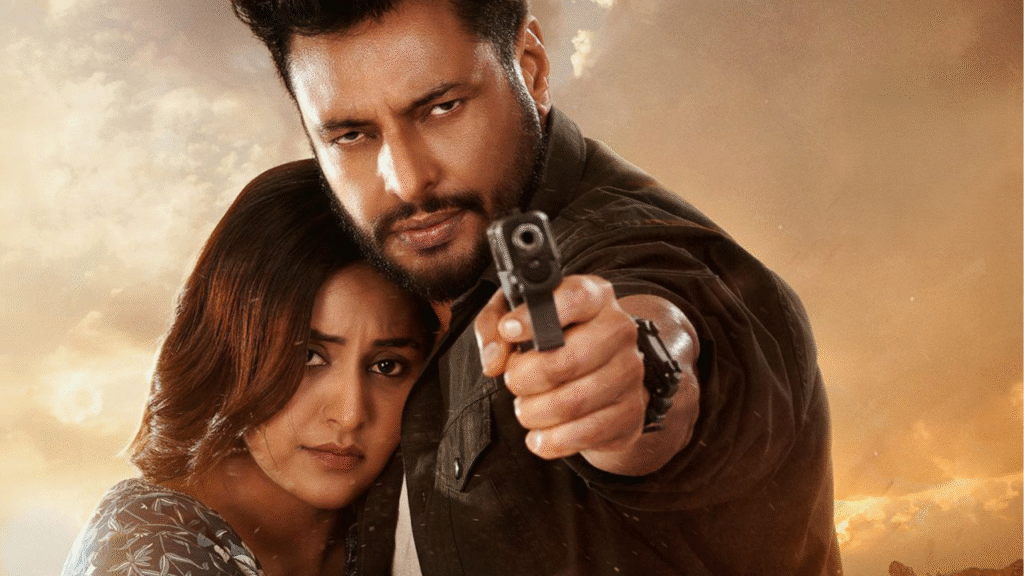Language: Punjabi
Age Rating: U/A
Genre: Biographical, Action, Crime Drama
In this Dakuaan Da Munda 3 movie review, we dive into the emotional core and brutal realism of a film that doesn’t just tell a story—it bleeds with it. Director Happy Rode delivers a powerful third chapter in the franchise, backed by career-defining performances, especially by Dev Kharoud, who returns as the wounded lion who refuses to stay down.
Plot: When Dreams are Crushed by a Corrupt System
Based on a true story, Dakuaan Da Munda 3 follows a young college student whose aspirations of becoming a boxing champion are shattered by a corrupt police force and a decaying system. What follows is a riveting descent into chaos, resistance, and the eventual rise of a man who has nothing left to lose.
Dev Kharoud delivers a layered performance as the protagonist—torn between despair and defiance. His restrained expressions, physical transformation, and the pain in his silences make him one of the most memorable leads in Punjabi cinema this year.
Check Out: Shaunki Sardar Movie Review – Babbu Maan and Guggu Gill Revive Punjabi Heroism in Style
Performances That Leave a Mark
Dev Kharoud as the ‘Zakhmi Sher’ is the soul of the film. He carries not just the narrative, but also the emotional burden of the film’s hard-hitting themes. His portrayal is raw, honest, and searing. Kabirduhan Singh plays the antagonist with quiet menace. His role as a ruthless cop is spine-chilling and adds significant weight to the story’s conflict.
Baani Sandhu and Drishty Talwar bring much-needed emotional depth and feminine perspective to this male-dominated story. Meanwhile, supporting actors like Navi Bhangu, Satinder Kassoana, and Raj Dhaliwal provide convincing and compelling performances that lend credibility to the story.
Direction, Screenplay & Tone
Happy Rode, who also directed the previous parts, gives the third installment more heart and grit. This time around, the lens zooms in on institutional rot, societal neglect, and the personal price of defiance. The direction feels more intimate and politically aware, showcasing a more vulnerable, human side of its lead.
Narinder Ambersaria’s writing strikes a chord with its unflinching honesty. Dialogues hit hard, and the pacing keeps the intensity consistent, even if certain narrative arcs feel familiar to franchise followers.
Check Out; Gangland: The City of Crime (2025) Movie review – A Raw Punjabi Crime Saga
Cinematography and Music: Realism That Hurts
Shiv Shakti’s cinematography captures the murky, industrial heart of Punjab—the dusty streets, desolate prisons, and adrenaline-pumping action sequences are beautifully bleak. The action isn’t just violent—it’s emotionally driven.
The soundtrack, especially the poignant tribute to Sidhu Moosewala, gives the film an added emotional punch. When his voice graces the screen, it’s a moment of reverence and reflection.
Strengths and Shortcomings
What Works:
- Dev Kharoud’s powerful central performance
- Unfiltered portrayal of systemic oppression
- Sharp direction and taut screenplay
- High-impact cinematography and a memorable soundtrack
Where It Slips:
- Familiar narrative beats for fans of the franchise
- Some secondary characters could use more depth
Check Out; Laarha Faraar (2025) Movie Review: A Hilarious Punjabi Comedy Amidst Chaos
Final Verdict: ⭐️⭐️⭐️⭐️½ (4.5/5 Stars)
Dakuaan Da Munda 3 isn’t just a film—it’s a battle cry. It portrays the struggle of every underdog whose life has been hijacked by injustice. With strong performances, tight storytelling, and searing social commentary, this is Punjabi cinema with purpose.
Whether you’re a fan of intense dramas or just looking for a film that resonates long after the credits roll, this one’s a must-watch.
